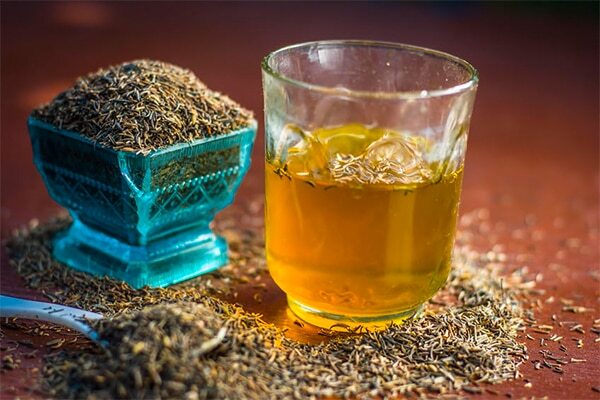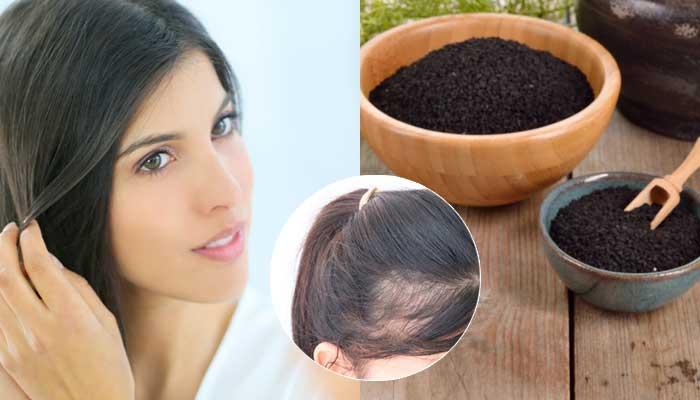Cumin, a staple spice derived from Cuminum cyminum L., is lauded for its multitude of cumin benefits, particularly in health and wellness spheres. Packed with antioxidants and offering anti-inflammatory properties, cumin is reputed for bolstering the immune system and managing health issues like diabetes, raising questions such as ‘Is cumin good for you?’ and ‘What are cumin seeds benefits?’ Particularly noteworthy are cumin water benefits and the spice’s potential to aid in weight loss, regulate blood sugar levels, and alleviate digestive discomfort, positioning cumin seeds benefits for females and males alike at the forefront of nutritional interest.
The exploration of cumin extends beyond its impact on health; its rich magnesium and iron content also implicate significant advantages for skin and hair health. While cumin seeds benefits are widely acclaimed, there’s a discerning need to delve into its potential cons and side effects, understanding the full spectrum of cumin health benefits and precautions.
This article will navigate these areas, analyzing the culinary prowess of cumin and diverse medicinal applications, all through a lens that underscores the importance of balance in its consumption.
II. Health Benefits of Cumin Seeds

Cumin, often known as jeera, is not just a spice that adds flavor to dishes; it’s a powerhouse of health benefits that can play a significant role in maintaining overall well-being. Here are some of the key health benefits of cumin:
- Digestive Health:
- Cumin aids digestion by stimulating the secretion of pancreatic enzymes, crucial for proper digestion and nutrient assimilation.
- Drinking jeera water is known to promote the absorption of nutrients, which can enhance skin health and prevent ailments.
- Nutritional Content:
- A rich source of iron, cumin seeds provide 17.5% of the recommended daily intake in just one teaspoon, supporting immune and cognitive function.
- They contain antioxidants like apigenin and luteolin, which help protect against cellular damage.
- Chronic Conditions:
- Cumin has been shown to help control blood sugar levels, making it a beneficial addition for those managing diabetes.
- With anti-inflammatory properties, cumin can reduce pain and inflammation, potentially benefiting conditions like rheumatoid arthritis.
- The spice may also help lower LDL cholesterol and triglycerides, contributing to better heart health.Additionally, cumin’s antibacterial and antiparasitic properties make it a natural option for combating harmful bacteria and aiding in the treatment of diarrhea. Its potential anticancer properties, particularly in protecting against colon cancer, further underscore the importance of cumin in a balanced diet. Whether aiming for weight loss or seeking to alleviate IBS symptoms, incorporating cumin into your diet can be beneficial. However, it’s essential to note that while research supports many of these benefits, more studies are needed to fully understand cumin’s role in treating certain conditions.
Read : The Power of Potato Face Masks: Unlocking Radiant Skin Naturally
III. Cumin Seeds for Skin Health

Cumin seeds, known as jeera, provide several benefits for skin health, thanks to their anti-inflammatory and antioxidant properties. Here’s how incorporating cumin into your skincare routine can be advantageous:
- Soothing Inflammation: The anti-inflammatory qualities of cumin can help calm the skin. For those experiencing allergic reactions or skin inflammation, using products with cumin as an ingredient or a homemade cumin-based topical application may offer relief.
- Fighting Signs of Aging: Packed with antioxidants, including vitamin E, cumin can play a role in shielding the skin from free radical damage. This action helps prevent early signs of aging, such as wrinkles and sagging skin, keeping the complexion youthful and vibrant.
- Acne and Pimple Treatment: The antibacterial properties of cumin make it an effective ally against the bacteria that cause acne. A cumin-based anti-acne toner may help clear up blemishes and maintain clear skin.For a homemade skincare treatment, consider these options:
- Face Mask for Bright Skin: Mix ground turmeric, cumin, and honey to create a mask. Apply to the face for a smoother and brighter complexion.
- Skin Irritation Relief: Create a paste from soaked cumin seeds and apply to the skin to alleviate irritation or allergies.Regular use of cumin in skincare routines, whether through commercial products or DIY remedies, can contribute to healthier, more resilient skin.
Read : Foods That Support Hair Growth, Strength, and Health
IV. Enhancing Hair Health with Cumin Seeds

Cumin seeds, known scientifically as Nigella Sativa, contain essential nutrients like iron, zinc, and vitamins A and E, which are key players in promoting hair health. These components are crucial for stimulating hair growth and maintaining strong, vibrant locks. Here’s how you can harness the power of cumin for your hair:
- Nourishing Hair Oil: Mix black cumin seeds with carrier oils such as coconut, olive, or almond oil. Apply this blend to your scalp to strengthen hair follicles, reduce breakage, and enhance blood circulation for healthier hair growth.
- Hair Rinse for Dandruff Control: Boil cumin seeds in water and use the cooled liquid as a hair rinse. This can be an effective treatment for dandruff, leaving your hair soft and shiny.
- Henna and Cumin Hair Pack: Combine henna with cumin powder and apply the mixture to your hair and scalp. This natural treatment can improve hair quality, promote shine, and support growth.Black cumin seed oil, particularly rich in thymoquinone, is a potent ingredient for hair care. Its benefits for hair include:
- Shine and Strength: Regular application of cumin seed oil can add a healthy shine and strengthen your hair.
- Stimulating Growth: Thymoquinone, an active compound in black cumin seed oil, may stimulate hair follicles, boosting growth and improving hair thickness and density.
- Scalp Health: The oil’s anti-inflammatory and antimicrobial properties help treat scalp conditions like dandruff and irritation.Incorporating cumin into your hair care routine can lead to noticeable improvements in hair health. However, always patch test any new treatment to ensure you do not have an adverse reaction and consult with a healthcare professional if you have underlying scalp conditions.
V. Potential Cons and Side Effects

While cumin offers numerous health benefits, it’s important to be aware of its potential downsides when consumed in excess or by individuals with specific health conditions. Here are some of the side effects and cons associated with cumin:
- Digestive Issues:
- Cumin seeds can lead to heartburn by increasing gas in the gastrointestinal tract.
- Excessive consumption may result in increased belching or burping.
- Reproductive Health Concerns:
- Pregnant women should use cumin with caution as it may induce labor or cause miscarriage.
- It may also suppress testosterone levels in men, potentially affecting fertility.
- Interactions with Medical Conditions and Medications:
- People with diabetes should monitor cumin intake as it can lower blood sugar levels.
- Cumin might slow blood clotting, exacerbating bleeding disorders and affecting surgery preparation and recovery.
- It may interact with medications that also slow clotting, increasing the risk of bruising and bleeding.
- Cumin could affect milk production in breastfeeding women and may lead to heavy menstrual bleeding.
- Allergic Reactions and Chronic Use Effects:
- Some individuals may experience an allergic reaction to cumin.
- Long-term use in large amounts can harm the liver and kidneys.
- Its narcotic properties can cause mental clouding, drowsiness, and nausea.Given the potent effects of cumin, it’s crucial for those with respiratory diseases, ulcers, or those taking certain medications, such as rifampin, to exercise caution. As with any supplement or dietary change, consulting with a healthcare professional is advisable to ensure safe and beneficial use.
Read : Unlock the Secrets of Guava Fruit & Leaves: 8 Health Benefits You Need to Know
VI. Culinary Uses and Recipes

Cumin, a versatile spice, enhances the flavor of numerous dishes across various cuisines. Its earthy warmth can be a game-changer in the kitchen, whether used whole or ground. Here’s how to incorporate cumin into your cooking:
- Diverse Cuisine Integration:
- Mexican: Add cumin to chili and sauces for a smoky depth.
- Indian: Employ cumin seeds in tadka to boost dals and vegetables.
- Middle Eastern: Use cumin to season lamb and eggplant dishes.
- Mediterranean & North African: Infuse cumin in stews, soups, and grain salads.
- Cooking Techniques:
- Toasting: Release the aromatic oils by dry-roasting the seeds before grinding.
- Frying: Start curries with cumin fried in oil to create a flavor base.
- Infusing: Cook cumin seeds with rice or quinoa to impart a nutty essence.
- Flavor Pairings and Spice Blends:
- Combine with cardamom, cinnamon, and coriander for a warm spice mix.
- Blend with chili powder or curry powder for homemade seasoning.
- Pair with mint or cilantro in chutneys and sauces for a fresh contrast.By integrating cumin into your recipes, you can explore the health benefits of cumin while enjoying a burst of flavor. Whether you’re aiming for weight loss with cumin water benefits or enriching your diet with iron and magnesium, this spice can be a healthy addition to your culinary repertoire.
VII. Conclusion
Throughout the discourse, we traversed the multifaceted attributes of cumin, evidencing its commendable benefits for health, skin, and hair, underscoring its prominence in nutritional conversations. The spice’s ability to enhance digestive health, control chronic conditions, and enrich skin and hair with essential vitamins and antioxidants, establishes it as a vital ingredient in both culinary and wellness realms. However, the acknowledgment of cumin’s potential side effects and the advised moderation of its consumption frame a balanced perspective, urging users to navigate its use with an informed approach.
The universal application of cumin, from soothing home remedies to enriching diverse global cuisines, captures its versatility and cultural significance. While embracing the rich tapestry of benefits cumin imparts, it is equally important to heed professional guidance, particularly when it pertains to personal health conditions or dietary restrictions. In conclusion, cumin stands as a witness to nature’s power in imparting health and flavor, a treasure trove to be mindfully explored and thoughtfully incorporated into our daily lives.

